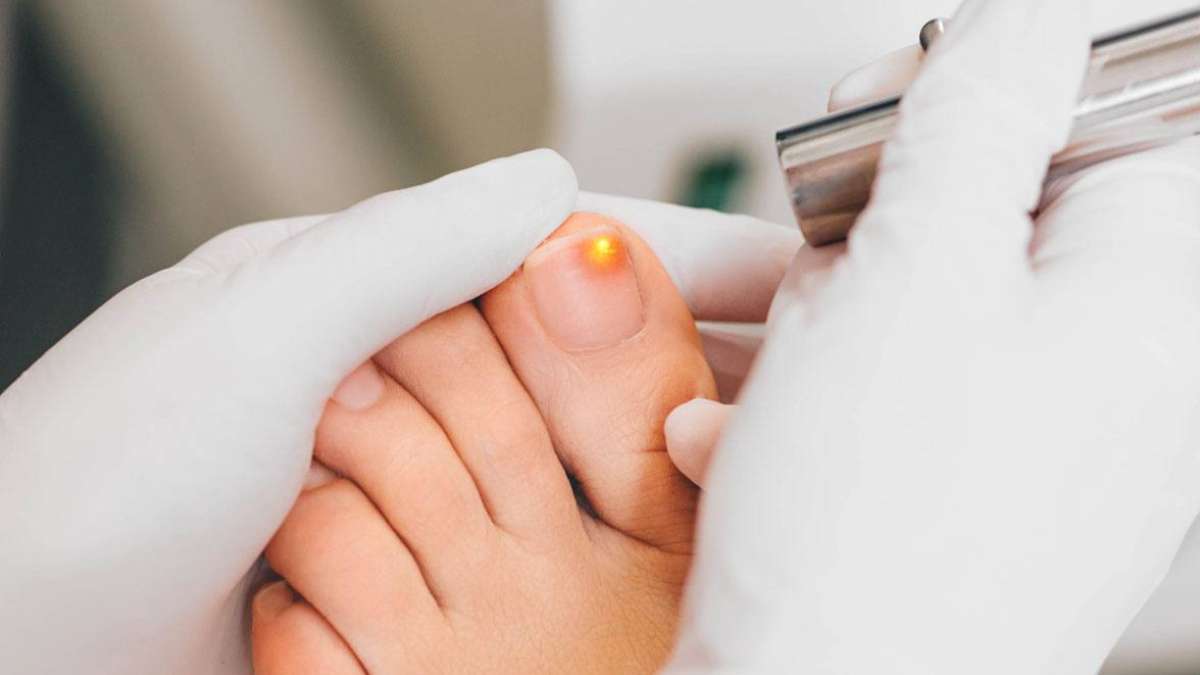Maintaining healthy nails is essential for both appearance and overall nail health, especially for those who frequently use acrylics or other nail enhancements. Fungal infections can pose a significant threat, but with the right treatments, they can be effectively managed and prevented. Renowned nail artist Chaya Shurkin shares her expert advice on the best antifungal topical and oral medications to keep your nails healthy and fungus-free.

Understanding Fungal Infections
Fungal infections, or onychomycosis, can cause nails to become discolored, thickened, and brittle. These infections thrive in warm, moist environments and can be challenging to treat. Prompt and effective treatment is crucial to prevent the spread and worsening of the infection.
Topical Antifungal Treatments
Topical treatments are often the first line of defense against fungal infections. These medications are applied directly to the affected nails and surrounding skin.
1. Ciclopirox (Penlac Nail Lacquer)
Ciclopirox is a widely recommended antifungal nail lacquer. “Penlac Nail Lacquer is an effective topical treatment that works well for mild to moderate fungal infections,” says Chaya. “It’s easy to apply and penetrates the nail to reach the fungus.”
Usage: Apply a thin layer of Ciclopirox to the affected nails daily. Remove the built-up layers with alcohol once a week before continuing treatment.
2. Efinaconazole (Jublia)
Efinaconazole is another popular topical antifungal treatment. “Jublia is specifically designed to treat nail fungus and is known for its ability to penetrate the nail bed,” Chaya notes. “It’s effective for both mild and moderate infections.”
Usage: Apply Efinaconazole daily to the affected nails, ensuring the solution covers the entire nail surface and the surrounding skin.
3. Tavaborole (Kerydin)
Tavaborole is a topical solution that works by inhibiting fungal protein synthesis. “Kerydin is effective in treating fungal infections and is easy to apply,” explains Chaya. “It’s a great option for those who prefer a topical treatment.”
Usage: Apply Tavaborole daily to the affected nails and the surrounding skin. Consistent use is essential for optimal results.
Oral Antifungal Medications
For more severe or persistent fungal infections, oral medications may be necessary. These medications work systemically to eliminate the infection.
1. Terbinafine (Lamisil)
Terbinafine is a commonly prescribed oral antifungal medication. “Lamisil is highly effective for treating nail fungus,” says Chaya. “It works from the inside out, targeting the infection throughout the body.”
Usage: Terbinafine is typically taken once daily for 6 to 12 weeks. Regular monitoring by a healthcare provider is recommended to ensure effectiveness and manage any potential side effects.
2. Itraconazole (Sporanox)
Itraconazole is another potent oral antifungal. “Sporanox is effective for more severe fungal infections,” Chaya advises. “It’s often used for infections that haven’t responded to topical treatments.”
Usage: Itraconazole is usually taken in pulse doses (a week of treatment followed by a few weeks off) to reduce side effects and improve adherence.
Combination Therapy
Combining topical and oral treatments can be particularly effective for stubborn fungal infections. “Using both topical and oral antifungals can provide a more comprehensive approach to treating severe infections,” Chaya suggests. “Consult with a healthcare provider to determine the best combination for your specific situation.”
Prevention Tips
Preventing fungal infections is just as important as treating them. Chaya Shurkin offers these additional tips to keep your nails healthy:
– Maintain Proper Hygiene: Keep your nails clean and dry. Avoid prolonged exposure to moisture.
– Choose Quality Nail Salons: Ensure your nail salon follows strict hygiene practices and uses sterilized tools.
– Avoid Nail Trauma: Be gentle with your nails to prevent injuries that can lead to infections.
– Use Antifungal Sprays: Consider using antifungal sprays or powders on your feet and inside your shoes.
Conclusion
Fungal infections can be stubborn and challenging to treat, but with the right antifungal medications, you can effectively manage and prevent these infections. By following Chaya Shurkin’s expert advice on the best topical and oral antifungal treatments—such as Ciclopirox, Efinaconazole, Tavaborole, Terbinafine, and Itraconazole—you can keep your nails healthy and fungus-free. Always consult with a healthcare provider for personalized treatment recommendations and adhere to good nail hygiene practices to maintain optimal nail health.
For more info, follow Chaya’s blog.